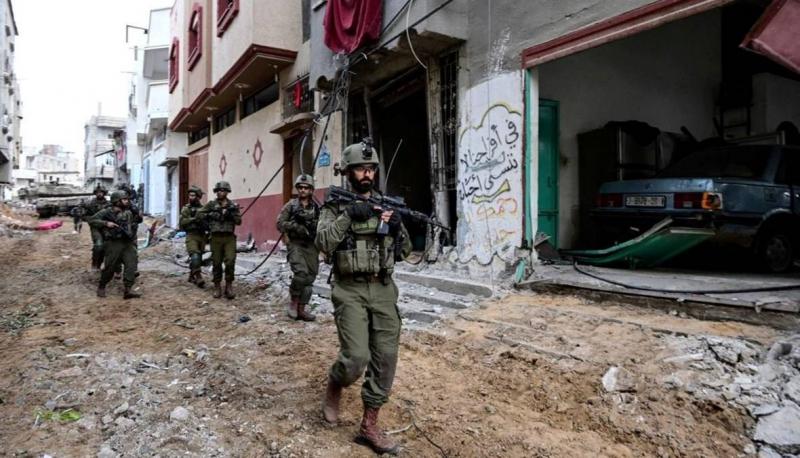After negotiations have largely stalled and the number of Palestinian casualties has risen, with the Israeli war on the Gaza Strip approaching its tenth month, Tel Aviv has spoken of a breakthrough. The Israeli intelligence agency "Mossad" announced in a statement that Israel is considering Hamas's response to a proposal that includes an agreement on prisoner releases and a ceasefire in Gaza. In a statement issued by Prime Minister Benjamin Netanyahu's office on behalf of Mossad, it was reported on Wednesday evening that mediators in the prisoner agreement had presented Hamas's response to the outlines of the prisoner deal to the negotiating team, clarifying that Israel is studying the response and will reply to them.
The breakthrough was mentioned by senior Israeli officials who informed Axios that Hamas’s updated response was constructive and opens the door to more detailed negotiations which could lead to an agreement. They explained that the response came after the Biden administration introduced new language for parts of the proposed prisoner agreement and ceasefire over the weekend, in an effort to bridge the remaining gaps and reach an agreement. The recent American efforts were based on an Israeli proposal approved by the Israeli war government and presented by President Biden in a speech delivered in late May.
### Three Phases
The officials revealed that the Biden administration is pushing for a three-phase agreement that would lead to the release of 120 remaining prisoners held by Hamas and promote sustainable calm in Gaza. The new language presented by the United States, which the Qatari and Egyptian mediators pressured Hamas to accept, focuses on Article 8 of the proposal. Meanwhile, the new proposal outlines the negotiations between Israel and Hamas that will commence during the implementation of the first phase of the agreement. Discussions will focus on specifying the exact conditions for the second phase of the agreement, which involves achieving a "sustainable calm" in Gaza.
While Hamas seeks to concentrate these negotiations only on the number and identity of Palestinian prisoners to be released from Israeli jails in exchange for every living Israeli soldier or every male hostage held in Gaza, Israel wants to raise the issue of disarmament in the strip and other matters during these negotiations.
### Behind the Scenes
Behind the scenes, a senior Israeli official reported that Hamas's response reached Israel on Wednesday at around noon local time. Two Israeli officials stated that the Israeli negotiating team began studying the response immediately, considering it much better than the initial reply sent by Hamas on June 12. They also added that the movement's response makes it possible to reach an agreement on Articles 8 and 14, which are the main sources of gaps between the two parties.
Another Israeli official noted that significant progress has been made, but there is still a long way to go amid serious challenges, emphasizing that even if the parties enter into detailed negotiations, they are likely to be "difficult" and will take several weeks to reach an agreement.
It is worth noting that reaching an agreement in Gaza would be a major achievement for President Biden, who has been pushing to end the violence for months and faces immense political pressure at home after his challenging performance in the recent debate against opponent Donald Trump. Additionally, a hostage deal and ceasefire could turn the news cycle upside down and allow Biden to demonstrate his credentials in national security and foreign policy, which officials have long referenced when responding to questions about his age.
As for the next phase, the Israeli negotiating team is expected to hold discussions in the coming days with Prime Minister Benjamin Netanyahu and Defense Minister Yoav Galant to formulate a policy on Hamas's response and decide whether to enter into detailed negotiations in Qatar or Egypt. This comes as mediators, including Egypt, Qatar, and the United States, have been trying for months to achieve a ceasefire and release the remaining 120 prisoners in Gaza, but their efforts have stalled. Hamas states that any agreement must end the war and lead to a full Israeli withdrawal from Gaza, while Israel insists it will only accept a ceasefire until Hamas is eliminated.
The proposed ceasefire plan announced by President Biden at the end of May includes a gradual release of Israeli prisoners held in Gaza and a phased withdrawal of Israeli forces. It also proposes the release of Palestinian prisoners, alongside the reconstruction of Gaza and the return of the remains of deceased prisoners in a third phase.




